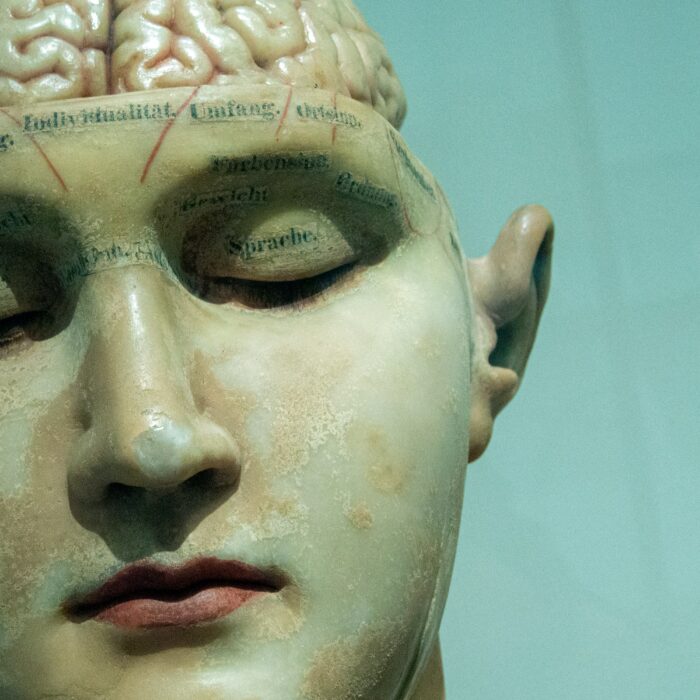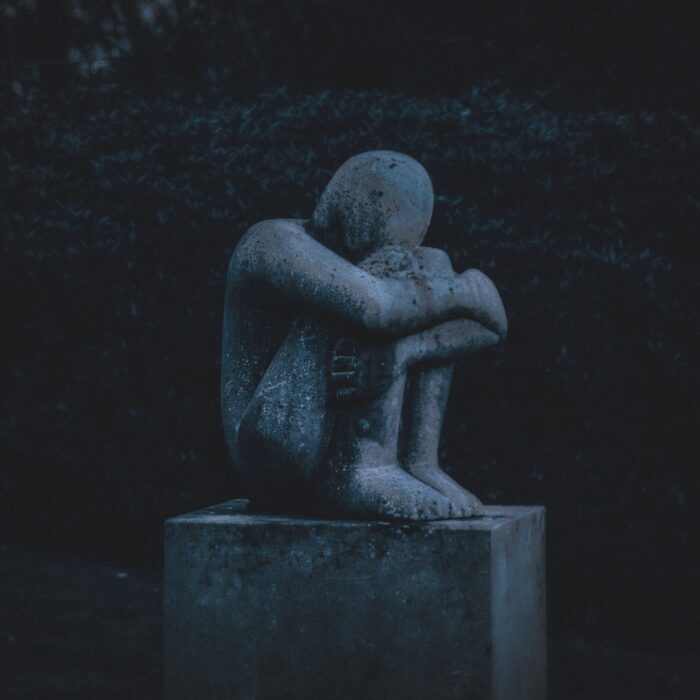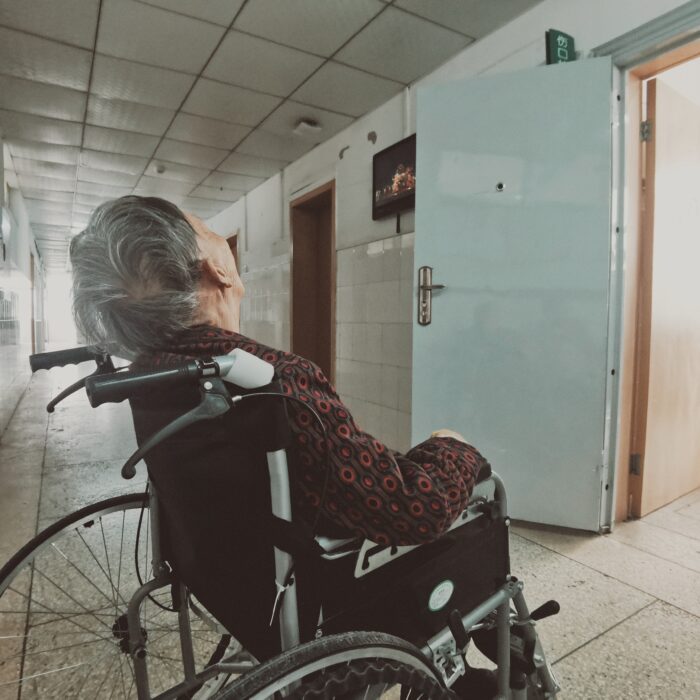You have no items in your cart. Want to get some nice things?
Go shopping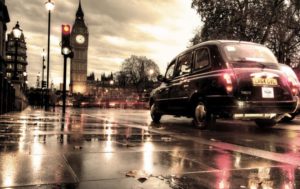 Any other Friday would’ve been a good one to be a cabby in the city. But, it was my son’s birthday and I couldn’t take full advantage of P.O.E.T.S day. Piss. Off. Early. Tomorrow’s. Saturday. The city workers obsessed about it like a nymphomaniac nun over a delivery of fresh carrots. They would down their tools (spreadsheets and calculators), throw jackets over their entitled shoulders and fuck off down the pub for a pint before a line of nose candy in the bogs. Then they’d stagger to me in my Hackney carriage, wanting to be ferried around, talking at me as if I didn’t know how to wipe my arse. I never told them how well my brain could process the knowledge or that I could recite poetry all the way from Chingford to Northolt and back again. But in all those years I never uttered: The mind is in its own place, and in itself / Can make a Heav’n of Hell, a Hell of Heav’n / What matter where, if I still be the same. Then again I didn’t say, There once was a fellow O’Doole / Who found little red spots on his tool / His Doctor a cynic / said Get out of me clinic / And wipe off that lipstick you fool because I was a driver, not an entertainer nor a philosopher. I was there to get them from a to b. That was it.
Any other Friday would’ve been a good one to be a cabby in the city. But, it was my son’s birthday and I couldn’t take full advantage of P.O.E.T.S day. Piss. Off. Early. Tomorrow’s. Saturday. The city workers obsessed about it like a nymphomaniac nun over a delivery of fresh carrots. They would down their tools (spreadsheets and calculators), throw jackets over their entitled shoulders and fuck off down the pub for a pint before a line of nose candy in the bogs. Then they’d stagger to me in my Hackney carriage, wanting to be ferried around, talking at me as if I didn’t know how to wipe my arse. I never told them how well my brain could process the knowledge or that I could recite poetry all the way from Chingford to Northolt and back again. But in all those years I never uttered: The mind is in its own place, and in itself / Can make a Heav’n of Hell, a Hell of Heav’n / What matter where, if I still be the same. Then again I didn’t say, There once was a fellow O’Doole / Who found little red spots on his tool / His Doctor a cynic / said Get out of me clinic / And wipe off that lipstick you fool because I was a driver, not an entertainer nor a philosopher. I was there to get them from a to b. That was it.
I’d been drinking since I got in the cab at nine. That was how things were: have a nip before turning the key. From Walthamstow to Fleet Street that day took an hour and a half in traffic. It was best to be zen about it and let only thoughts of Basho and calm haikus make their way in: A snowy morning— / by myself, / chewing on dried salmon. Without dried salmon on the Seven Sisters Road, I had to make do with a top-up from my hip flask, engraved: The road to excess leads to the palace of wisdom (that’s Blake, that is). My mind was all over the shop. As well as my son’s birthday I had to visit my father whose birthday was on Sunday but I could, and would, only see him that Friday. I also had to pick up the cake that I was told was in the shape of a dinosaur. Ben had turned three and before I left I wiped his nose, made his breakfast and tickled him. It was all done with a thick head. My wife, Chloe, was up, making the house beautiful for her family and the party we’d be having. She’s younger than me. Fifteen years younger. I was a year shy of half a century then and most days I felt like a tortoise crawling through tar. Chloe’s dad, Stevie, was five years older than me but he looked younger. In family photos, I look like his big, irresponsible, brother. With his own business (a butchers in the village) he drove a Merc, played golf during the week and had a season ticket for Arsenal. He offered me a job after Ben was born. I told him I was happy being Falstaff behind the wheel. He told me not to be a prick.
Getting near to Finsbury Park the traffic was thinning out. I put the hip flask away but didn’t bother turning the service light on. A line came to me about my mind: my mind is forever trying to lasso a dog, bat, wasp! I had a folder, under our bed, of lines written on dissected beermats, ripped fag packets, old receipts and faded sheets of paper from the dashboard notepad. There was something approaching poetry in that folder and the lasso line would go in.
Feeling better, I put the service light on but no one stuck out their hand. As the cab crept towards Holloway the hip flask was back in my clutch, the liquid making its way down my throat.
Growing up, Sundays were never good.
My parents argued at home and their twelve-round fight was always on a Sunday (Saturdays were reserved for playing cribbage with their church friends, Judy and Ted). They weren’t alcoholics. Neither of them drank anything harder than the red wine, the blood of Christ, which they only took once a week on Sunday mornings. We wouldn’t eat before church. Instead, we’d get there early and wait for the cold dreaded spectacle to begin: the songs and prayers always sombre.
After church, we’d go to a local caff and eat. We’d eat a lot. My parents ate a lot to give them strength to fight later. I would eat a full English with extra fried bread thinking that this was my first and last meal of the day: my parents would be too busy to cook when they were fighting. As far as I know they never hit one another except with their words, the volume of which, the incessancy of it, was more than enough. In their distance from me I’d stay in my room (more cell than sanctuary), their shouting beginning from the moment the front door closed until the bed springs creaked once and settled. We were in the same house but they became unattended objects: simple, empty, vases.
When I was confirmed, I started to go to church on Saturdays for confession. Confession was at ten. I would be there by nine. I kept going until I was eighteen when the pub replaced the church: The Prince of Wales succeeded The Immaculate Heart of Mary.
While giving up the church was easy, the library was forever sacrosanct.
I only went to the library, the first time, because the thought of going home after confession was too depressing. Like the church, it never seemed a place where I would find salvation — just rest. Unlike the church, it saved me. At school the teachers would make us take it in turns to read aloud some Shakespeare, a bit of Dickens and a flicker of Blake, and so badly would we all read that Cockney versifier it’s still a shock how I later found myself searching through poetry titles in the library. If I’d walked left instead of right and found myself looking at books on accounting, would I be any happier? If my mind could process calculations, dividends and speculations would I have been drinking in a cab on my son’s birthday? But it was right I turned and what I’ve taken away is a lifetime of verse: sestets, enjambments, zeugmas and all. Through my childhood, I curled close to the wall in my bedroom to read poetry at night, after the house grew still.
When I was thirty-eight, my mother died. My father never took to drink. He became more magnanimous.
After Ben was born I visited my father (I would never have him over our threshold) only at Christmas and then on Ben’s third birthday. We had two Christmases together where I showed off my wife and son before I hit the drink, carving the turkey with a shaky hand.
‘Don’t drink too much,’ my father said the second Christmas. ‘Don’t want any accidents round here.’ He winked at Chloe. He waved at Ben.
‘You saying Ben was an accident?’ I said. ‘Is that what you’re saying?’
‘I’ve been looking forward to this turkey,’ Chloe said.
‘You still go to church every Saturday morning?’
I placed turkey on Chloe’s plate. ‘Haven’t been for years.’
He smiled. ‘A man needs his Christ.’
‘And I’ve got it.’ I smiled at Chloe and Ben. A big, honest, drunken smile.
‘You’ve got a cross. One mighty, big cross,’ he said and took a sip of water. ‘Thank God though that you’ve got Chloe and Ben. A beautiful wife and son. That’ll help put you steady. In the end, that’s what’ll do it.’
At Whitefriars Street I parked behind the rest of my comrades. Around the corner, on Fleet Street, was a semi-local of mine, The Punch Tavern where both the hobo and the gent drank. In the glovebox was some Dylan Thomas, Anne Finch and Seamus Heaney. Looking forward, I resisted taking one of them out. With a dry mouth I thought only of the pub. In the toilet stalls, amongst the doodles of cocks and scribblings of phone numbers were a few lines of poetry I’d written there the week before: For all the crimes I have done / Having a number two on the floor here was one. They did good beer, but it was too early to get started in earnest. Once you get on that train it’s difficult to disembark: a blessing and a curse. I got out, stretched before taking out my packet of cigarettes and sparking up. Drawing in the smoke I was free, for a moment. The cab at the start of the queue moved forward. My associates followed. Fag in mouth, I got behind the wheel, started up and pulled forward.
‘You can’t smoke in your workplace,’ a thick set man in a grey suit said to me from the pavement.
I popped my head out the window. ‘Who the fuck are you?’
He stopped. ‘What’s your license number?’
‘Let’s have a look…9-8-7-go fuck yourself!’
‘What did you say?’
‘I’m trying to smoke in peace, you arsehole. Give me a fucking break.’
‘I asked you, “What’s your license number?”’
I sighed, started up again and drove off, circled the block and got back in the queue that had grown by two cabs. I should’ve been a labourer. I should’ve taken that butchers job. I should’ve walked into the economics section of the library (330 not 821). But there I was, tired, confused and still thinking of poetry; thoughts that tried to iron out the creases of other thoughts. I wrote on the pad: silly fucking grey twat. I crossed it out. Started again: like a stream of piss up against the wall / ultimately / you keep flowing back to me.
In bed, the night before, as Chloe and I made the beast with two backs (there’s some Othello for you), I stopped.
‘What’s wrong?’ she said.
‘I don’t know if there’s a home that’ll take him.’
‘Who?’
‘My father.’
I moved off of Chloe and lay beside her. My hand rested on her stomach.
‘It’s okay. We’ll find somewhere for him,’ she said.
‘Not near here we won’t.’
‘Doesn’t have to be. But, I don’t think he should stay in Kilburn.’
‘It’s as good a place as any,’ I said, breathing in and out, feeling old. ‘Far enough too.’
Chloe got out of bed to go to the toilet. Since Ben was born she wanted me to see more of my father. I never thought that’d be the case, given how she used to call him the “teetotal drunk” after they first met. Funny how children change your perceptions, making a cynic optimistic, an optimist cynical, driving one man to action and another into retirement. Chloe got to like the old man, to feel sorry for him, but I only turned further away.
I was the kind of dad who loved to change nappies and get on the floor and play with his boy, a boy who would not see the man before him suddenly shout, would not see him use clever words against his mother. No. This was to be a boy who was well looked after, a boy without want. But each time I played with my son, the voice of my father rose and I grew to hate it more. My father became a mirror that needed to be covered.
‘You’ll have to look after him—’ Chloe started, coming back to bed.
‘Who?’
‘Your dad.’
‘Right.’
‘You’re the only one who can.’
When Chloe went back to sleep I went into the kitchen for a drink. In the dining room there were photos of our son, of us, of the life which always seemed too miraculous.
Back in the cab, my thoughts were still on The Punch Tavern. I couldn’t visit him without a beer. Just one.
Old men usually only wear suits to preserve a bit of dignity. As their bodies begin to fail and whither, men need suits to feel human. When bowel movements start creeping out with no notice at the speed of a cat’s paw stretching towards a sunbeam, when tired arthritic joints hold up a body of flesh that resembles more a scrotum than a person, when skin tags and liver spots pollute that skin, then the last vestige of nobility is the suit. My father’s never been out of a suit. How he managed to shag my mother, which he must have done at least the once, who knows? I never even saw him in trunks. Did he know how to swim? On the few holidays they had before my mother died, they’d go to Malta (to visit the churches) and under that Mediterranean sun he’d still be in his suit. That’s what I was looking at when I finally got to Kilburn, a photo frame atop the fireplace of him and my mother standing outside the Parish Church of Jesus of Nazareth in Silema. Neither of my parents smile in the photo. A guest may think it’s because of the sun in their eyes.
‘Black coffee for the tired worker,’ my father said, placing the cup in front of me. ‘Drink it down, let it do its work.’
I looked up at him. He was meek and mild. ‘You not having anything?’
‘I’ve got my water.’ He turned and made his way slowly to his brown corduroy armchair with white doilies on the arms. He got into it with a heavy sigh. This man never admitted to anything until his body told him he had to. ‘It’s too late in the day to put caffeine in my body.’
‘It’s three o’clock.’
‘Exactly.’
The present I brought round, aftershave, was left unopened on the kitchen counter. Apart from the sipping of my coffee the only other sound was distant traffic. There was a storage cupboard against the main wall which held hundreds of records, classical mostly. Rarely were they played, only there to be spun on those rare days when an argument finished before bedtime: lullabies that sent the prizefighters to sleep. There was no TV. Anyone would think we were intellectuals but apart from the Bible and some Readers Digest abridged collections, we had no books. I stared at the photo above the fireplace as I drank my coffee wondering how he spent his time in old age.
‘What did you get him?’ my father said.
‘Sorry?’
He tutted. ‘What did you get your son?’
‘He likes cars, so I got him a wooden bus.’
‘That’s not a car.’
‘I know.’
‘It’s a bus.’
‘I know.’
‘You can get nearly a hundred people on a bus. Maximum five to seven in a car. Big difference.’
‘He won’t know.’
‘He’s three, not thick.’
‘I know.’
‘So, when are we leaving?
I sipped some coffee. ‘What?’
‘To go to the party.’
‘It’s a children’s party.’
‘I’m aware my grandson is a child. I’m not senile.’
I didn’t want to look at him, instead my eyes wandered around the room. ‘What do you do all day?’
‘Hey?’
‘What do you do all day here?’
‘You think I don’t do anything?’
‘I didn’t say that.’
‘I do plenty. You want me to start an inventory of my life for you?’
I finished my coffee. There was never enough, never could be enough coffee for me to sit with him. I’d left the hip flask in the cab. To stop from going to it I rubbed the tops of my thighs.
‘You got rheumatism?’
‘Of course I ain’t got rheumatism. I ain’t even fifty.’
‘You can’t drink if you’ve got that. It’ll ruin you. Anyway, come on…when we leaving?’
I bit the inside of my cheek. I sat forward. ‘You still only on the one a week then?’
‘One a week of what?’
‘Booze.’
‘Alcohol? Alcohol? I don’t drink.’
‘Yeah…you do. One a week you’re on, right?’
He matched me and sat forward, only he had a smile on his face that was as lazy as syrup.
‘I don’t drink. Tried it as a young man, once, never agreed with me. I don’t want to be a fool before I get to heaven.’
‘Yeah, you’re still on one a week. Must be. You still go to church?’
‘Don’t be stupid, I always go. More than once these days.’
‘You still drink that wine then?’
‘That’s the blood of Christ! That is not wine.’
‘It’s time someone set you straight.’
‘That so? What you got to tell me?’
‘It’s cheap plonk blessed by a nonce.’
‘What did you say?’
I stood up and went to him. This man who kept punching with his words, who sparred every day of his married life, who knew every nut and bolt of that ring, who knew how to duck, slip and weave, who could move off the ropes before you knew he was on them, started sinking into his chair. I was above him.
‘It’s shit old wine, sanctified by a paedophile in a palace for deluded fools, drunk by halfwits who’ve never had a good time in their lives. You’re as dour as a Scotsman with his wallet nicked. You’re half the man you were and that was half a man to begin with. What you got?’ My hands were tight and I uncurled them. He was looking at me, wondering who I was. My hand was down by my side. It was heavy; a weight that surprised me with how easy it rose. I slapped him. ‘What you got? Hmm?’ I slapped my father again. One side of his pale face was flushed; a red and white Venetian mask. ‘Huh? What you got?’
‘Please…’
He started crying. I don’t know what would have happened if he didn’t. My teeth were tight. I put my hands in my pocket, walked out with my body straight and went to my cab, opened the door, got my hip flask and polished it off, standing with the sun on my shoulders, the cab door wide open as children played on the street.
It was near five. Ben’s party had started at four. I was supposed to be home at five; the dad who worked hard for his family was allowed to be a little late. In the Ikea at Wembley I sat in its caff and drank some whisky, straight from the bottle I’d bought on the way there, as I ate mash and meatballs. The place was full of families. The children, still in their school uniforms, looked happy as they ate but soon they’d feel like they were in a museum. The older ones would try and be grown up and get involved with their parent’s discussion of whether to buy new bedding or not. However, most of them would only be sated by the purchase of a rug in the shape of a football or a pink heart. But these parents were good parents, the kind that’d make sure that their children joined clubs at school, that they’d partake in team sports; that there’d be food on the table and there wouldn’t be violence on the TV, no swearing in the house, no raised voices. I could see Chloe as one of those responsible parents. I could see Ben as one of those lucky children.
Back in my cab I picked up my pen and wrote on the notepad: The cake is extinct.
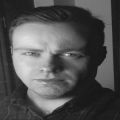
About Chris Simpson
CHRIS SIMPSON grew up in Bracknell and Slough. He has worked as a waiter, a cinema projectionist, a shoe salesman, an attendant in an amusement arcade, hiring out construction and demolition tools, a pasty seller, a caretaker for a primary school and is now a teaching assistant. He was a collaborator on a sketch show and has performed as a stand-up comedian. He received a First in Creative Writing at BA level from Birkbeck University. In 2016 he was nominated for the Royal Academy and Pin Drop Short Story Award 2016. "Part-Time Happiness" is his first collection comprising of seven short stories bookended by two novellas (currently unpublished). He is also the writer of several plays. He lives in Moscow and is working on a novel, "The Infinite Ache". You can find him on www.writerchrissimpson.com


